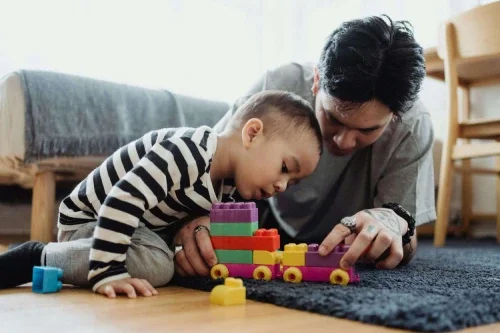Understanding the Role of Play Therapy in Supporting Children's Recovery
When children experience overwhelming situations, whether it's trauma, extended hospital stays, medical procedures, or abuse, they often lack the words to express the complex emotions swirling inside them. That's where play therapy becomes a powerful pathway to healing, offering children a natural and safe way to process their experiences and begin their recovery journey.
Why Traditional Talk Therapy Isn't Always Enough for Children
Children process the world differently from adults. Their brains are still developing, particularly the areas responsible for verbal expression and logical reasoning. When a child experiences something difficult, they might not have the vocabulary or emotional awareness to say, "I feel anxious when I hear loud noises because it reminds me of when I was scared."
Instead, children naturally turn to play as their native language. Through play, they can express fears, recreate experiences, and work through confusing emotions without needing to find the "right" words. This is especially true for children who've experienced trauma, medical challenges, or abuse, where the emotions are often too big and overwhelming for words alone.
How Play Therapy Supports Recovery from Trauma
For children who've experienced trauma, play therapy offers a gentle way to regain a sense of control and safety. In the playroom, children can process their experiences at their own pace, approaching difficult topics when they're ready. A child might initially play with toys unrelated to their trauma, building trust and comfort before naturally moving toward processing their experiences.
Through play, children often recreate traumatic events, but this time with a different outcome. A child who experienced a car accident might repeatedly crash toy cars, eventually having the toys "get better" or "be okay" — their way of rewriting their story with hope. Sand tray therapy, art, or dramatic play allows children to show what happened to them without having to relive painful memories verbally. This indirect expression often feels safer and less overwhelming.
Healing from Abuse Through Play
For children who've experienced abuse, play therapy provides essential elements for recovery. The therapeutic relationship itself becomes healing — having a consistent, safe adult who respects their boundaries helps children learn that not all adults are harmful. Abuse strips children of their sense of control, but in play therapy, children make choices about what to play with, how to play, and when to stop. These small decisions help rebuild their sense of agency.
Children who've experienced abuse often carry conflicting feelings of love and fear, loyalty and anger. Through play, they can explore these complicated emotions without judgment. The playroom becomes a space where all feelings are acceptable, and children learn they're not "bad" for having complex emotions about people who hurt them.
What Parents Can Expect
If your child begins play therapy, know that healing happens gradually. Some children show dramatic improvements quickly, while others need more time. Every child's healing journey is unique, and that's perfectly okay. You might notice:
Initial increases in play themes related to their experiences (this is normal and healthy)
Gradual improvements in sleep, appetite, and behavior
Increased emotional expression at home as they become more comfortable with their feelings
Growing confidence and return to age-appropriate activities
Behavioral regressions before improvements (part of the healing process)
Signs Your Child Might Benefit from Play Therapy
Consider play therapy if your child:
Has experienced a traumatic event and seems "stuck" or different than before
Shows regression in behaviors (bedwetting, baby talk, clinging)
Has increased fears, nightmares, or anxiety
Exhibits aggressive play or behavior changes after medical experiences
Struggles to talk about difficult experiences, but shows distress through behavior
Has been through abuse or witnessed violence
If you're wondering whether play therapy might help your child, trust your instincts. You know your child best, and if something feels off, it's worth exploring. Reach out today to learn more.

